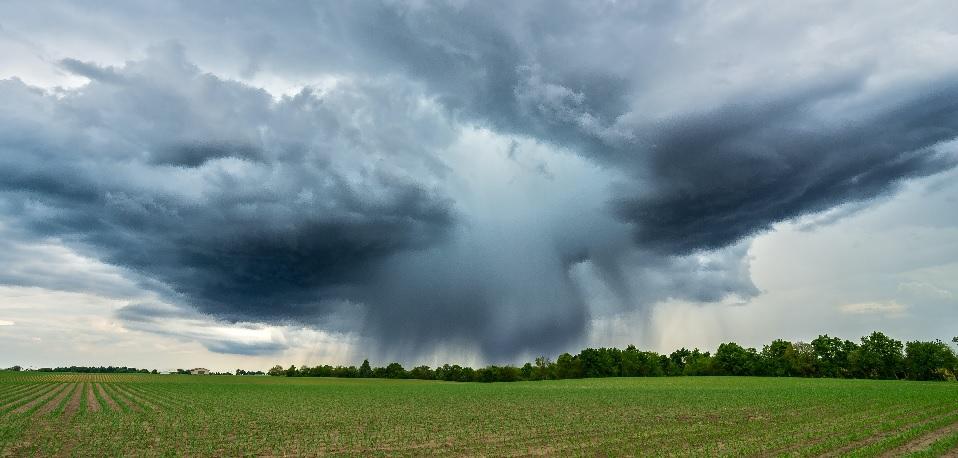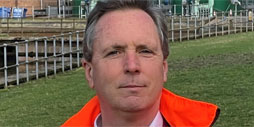
2 March 2022 - Look at the climate impacts we are seeing and tell me with a straight face we don't need to act now, says Peter Simpson, Chief Executive of Anglian Water and co-Chair of the UK Corporate Leaders Group.
No one reading this piece will be insensitive to the growing cost-of-living challenge facing millions of people across the UK. Clearly, it’s crucial that those who are struggling to make ends meet are supported with meaningful and targeted action – perhaps on the lines of the new national social tariff currently being considered for the water sector, which we are supporting – to ensure they don’t face the impossible choice of whether to heat their homes or eat. But that truism does not give policymakers licence to shelve the most pressing issue of our time – namely the work to ensure we face up to the implications and challenges of climate change. This isn’t and can’t be a binary issue.
In confronting climate change, not only do we need to facilitate a swift and just transition to net zero, we also need to adapt effectively to the impacts of the climate change that’s already baked in to our planet’s ecosystem. The risk of devastating consequences of inaction is growing. Already this winter, we’ve seen seven named storms – three of them in the past fortnight - causing widespread serious disruption, with thousands of people off power or displaced from their homes by flooding and even, sadly, a number of deaths.
Chair of the Environment Agency Emma Howard Boyd made this point powerfully in a recent speech where she highlighted the UK’s Climate Change Risk Assessment 2022, which puts the economic damages of climate change at many billions of pounds a year by 2050 – with some estimates putting it at 1 per cent of GDP or more by 2045. The cost of Storm Eunice alone has been estimated by the Association of British Insurers at £360 million.
Even more starkly, Ms Howard Boyd reminded delegates of the 200 people who died in last year’s floods in Germany – and highlighted the 61% of people at risk of flooding in the UK who aren’t aware of the risk they face. The potential human cost of climate change, above all else, should be enough to drive action. The Climate Change Risk Assessment makes clear that nowhere near enough is being done by UK PLC to ready ourselves for the impacts of the increasingly frequent and severe weather events we must expect.
In this context it is thoroughly disheartening to hear disingenuous calls from organisations like the Conservative Net Zero Scrutiny Group for the ramping up of fossil fuel production and the resumption of fracking, which offer a poor response to current issues and are wildly at odds with the prevailing mood post-COP26. When the human, environmental and economic costs of climate change are properly reckoned with, then what seems like a laissez-faire attitude to its prospect cannot be allowed to take hold.
With the prospect of limiting the average global temperature rise described as being “on life support” by no less a figure than UN Secretary-General António Guterres at COP26, and the Intergovernmental Panel on Climate Change (IPCC) sounding loud alarm bells in its assessment of climate impacts on Monday, it’s clear that kicking the can down the road for future generations to deal with is not an option. Treasury Minister Simon Clarke made the point well, calling the prospect of scaling back ambition ‘positively irrational’ in remarks to a cross-party group of MPs earlier this week.
So the UK Corporate Leaders Group, which represents some of the UK’s leading progressive businesses in sectors from utilities to aviation, and from banking to FMCG, will continue our longstanding action to push for that crucial just transition to net zero, and this year we’re pressing for a national conversation on adaptation and resilience.
In our recent report we called for a step change from both government and business in preparedness for the impacts of climate change. Calling for both action on integrating adaptation into climate strategies as well as raising awareness of the issue in boardrooms and with policymakers, the paper reaffirmed that adaptation is key to protecting communities, and building business and economic resilience to the changes coming down the line.
So, to those who would say we’re spending too much, too soon, and taking our eye off the ball elsewhere, I say - look at the world outside. Look at the pace at which weather impacts are disrupting our day-to-day lives, even in the UK, and tell me with a straight face we don’t need to act now. When we – or our children and grandchildren – look back in years to come, I know which side of the debate I want to have been on.






